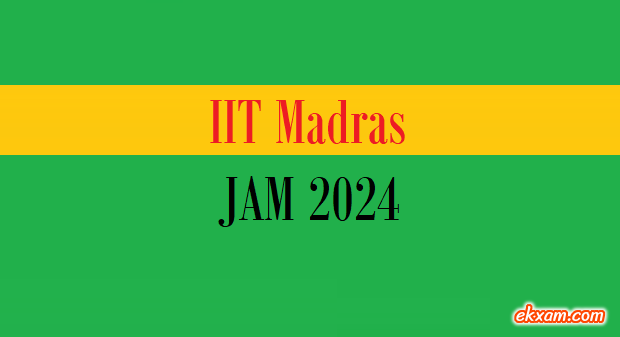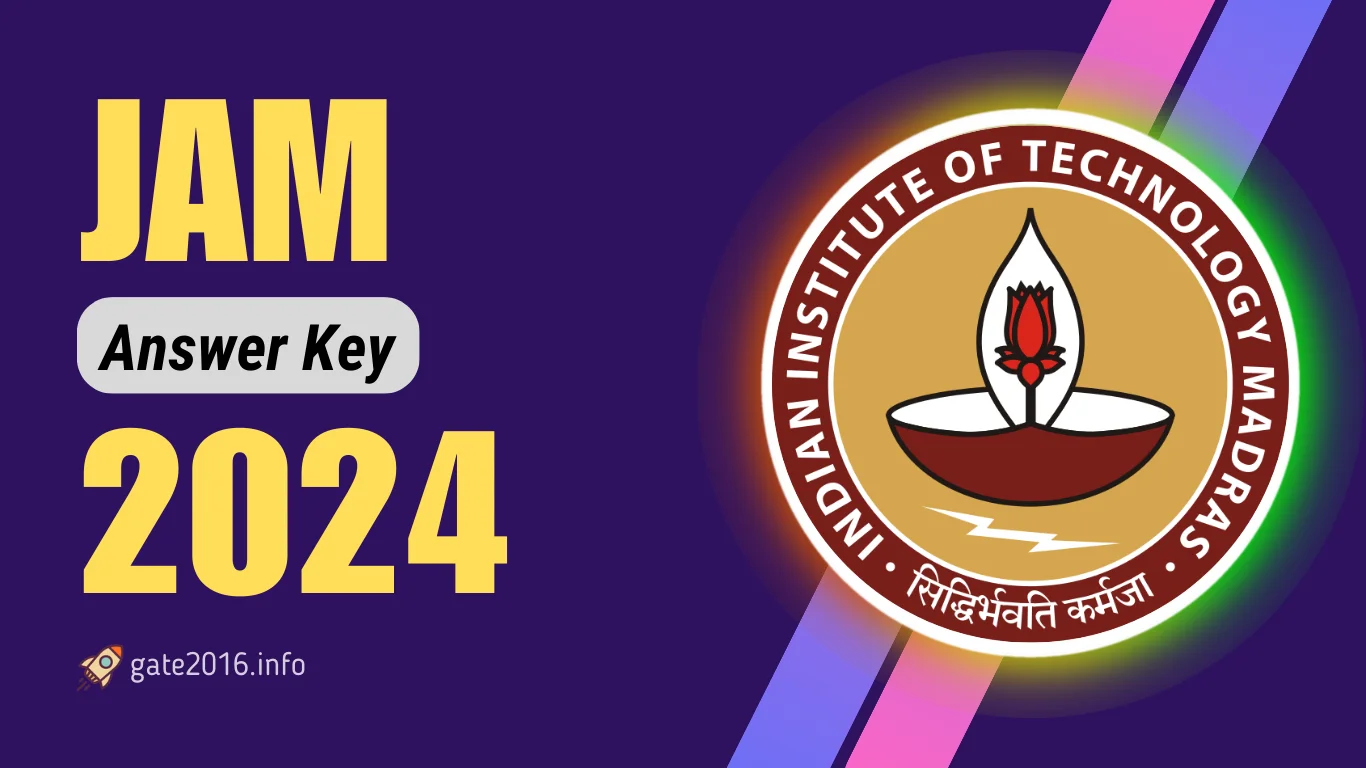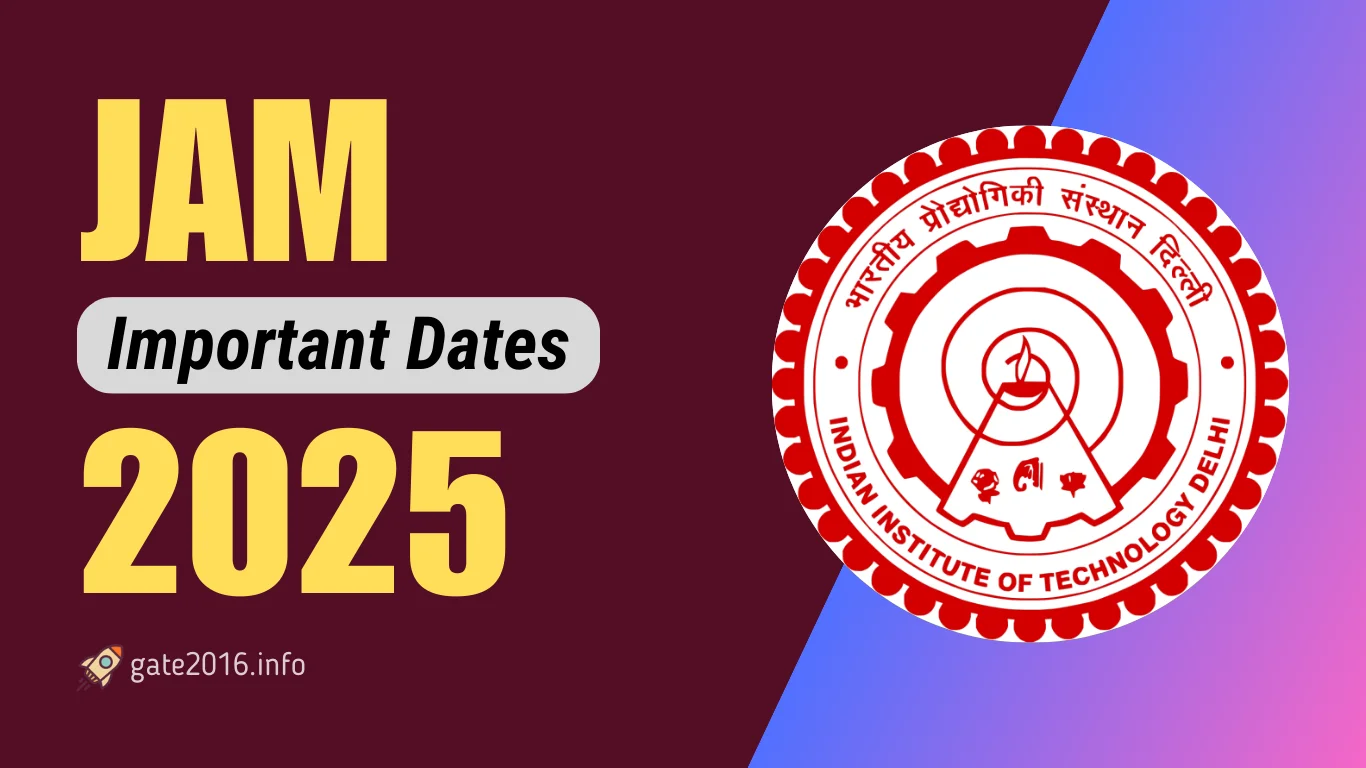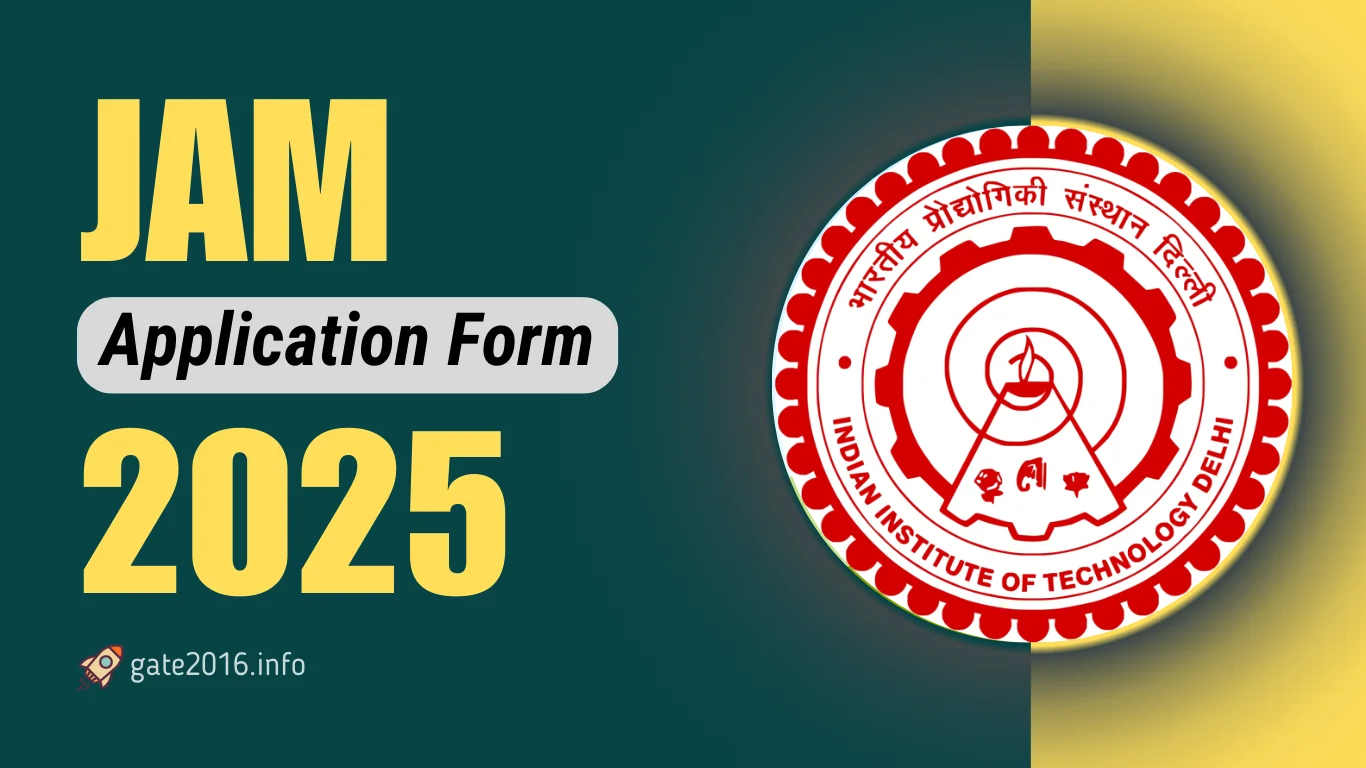Advertisements
Ratings
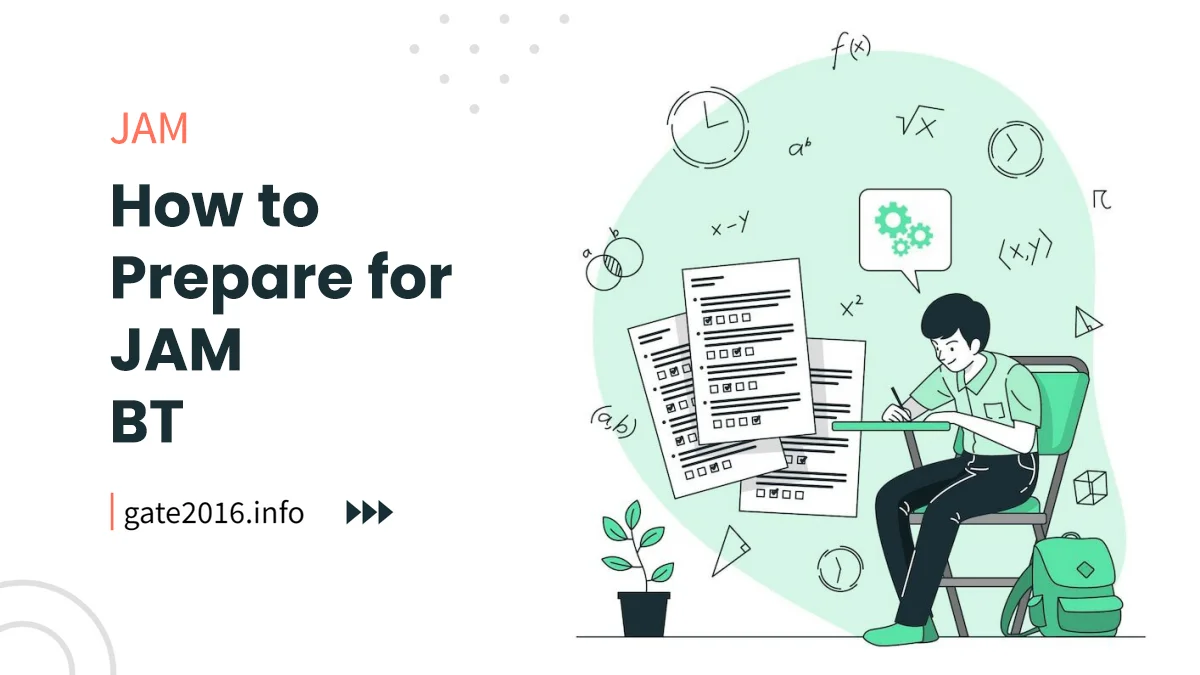
JAM 2024 BT Preparation – The Joint Admission Test for M.Sc. (JAM) Biotechnology is a prestigious examination that opens doors to various postgraduate programs in biotechnology.
Preparing for JAM Biotechnology requires a strategic and focused approach. This comprehensive guide aims to provide aspiring candidates in the field of biotechnology with a roadmap for effective JAM preparation.
Contents
- 1. Introduction to JAM Biotechnology
- 2. JAM Biotechnology Syllabus Overview
- 3. Developing a Structured Study Plan
- 4. Selection of Study Materials
- 5. Mastering Core Biotechnology Concepts
- 6. Problem-Solving Practice
- 7. Reviewing Previous Years’ Question Papers
- 8. Taking Mock Tests
- 9. Effective Time Management Strategies
- 10. Implementing Revision Techniques
- 11. Staying Informed with Biotechnology Trends
- 12. Managing Exam Stress
- 13. Final Weeks’ Preparation Strategy
- 14. Approaching Exam Day
- 15. Post-Exam Analysis and Next Steps
- Conclusion: Excelling in JAM Biotechnology
- Additional Resources and References
- JAM Biotechnology Guidance
- JAM Biotechnology Preparation FAQs
- JAM Total Information & Guidance
1. Introduction to JAM Biotechnology
JAM Biotechnology serves as a gateway for those who aspire to delve deeper into the world of biotechnology.
It evaluates candidates’ knowledge in subjects like biology, chemistry, mathematics, and physics, essential for a strong foundation in biotechnology.
2. JAM Biotechnology Syllabus Overview
Understanding the JAM Biotechnology syllabus is crucial to tailor your preparation:
Table 1: JAM Biotechnology Syllabus Breakdown
| Subject | Key Topics |
|---|---|
| General Biology | Cell biology, genetics, molecular biology, immunology |
| Biochemistry | Biomolecules, enzyme kinetics, metabolism |
| Molecular Biology | DNA replication, transcription, translation |
| Cell Biology | Cell cycle, cell signaling, apoptosis |
| Microbiology | Microbial diversity, industrial microbiology |
| Immunology | Immune system, antigens, antibody structure |
3. Developing a Structured Study Plan
A well-structured study plan is the foundation of successful preparation:
- Customized Schedule: Tailor the plan according to your strengths and weaknesses.
- Time Allocation: Allocate dedicated time for each subject based on its weightage.
Table 2: Sample Study Plan
| Week | Subjects/Topics | Time Allocation |
|---|---|---|
| 1-2 | General Biology | 12 hours/week |
| 3-4 | Biochemistry | 10 hours/week |
| 5-6 | Molecular Biology, Cell Biology | 10 hours/week |
| 7-8 | Microbiology | 8 hours/week |
| 9-10 | Immunology | 12 hours/week |
4. Selection of Study Materials
Choosing the right study materials is crucial for comprehensive learning:
Table 3: Recommended Study Resources
| Subject | Books | Online Resources |
|---|---|---|
| General Biology | “Molecular Biology of the Cell” by Bruce Alberts | NPTEL’s Biotechnology Course |
| Biochemistry | “Lehninger Principles of Biochemistry” by David L. Nelson | Coursera’s Biochemistry Courses |
| Molecular Biology | “Genes IX” by Benjamin Lewin | edX’s Molecular Biology Courses |
| Cell Biology | “Essential Cell Biology” by Bruce Alberts | YouTube’s Cell Biology Tutorials |
| Microbiology | “Microbiology: An Introduction” by Gerard J. Tortora | NPTEL’s Microbiology Course |
| Immunology | “Kuby Immunology” by Judy Owen and Jenni Punt | Immunology Online Resources |
5. Mastering Core Biotechnology Concepts
Establish a strong foundation in core biotechnology concepts:
- General Biology: Grasp cell biology, genetics, molecular biology, and immunology.
- Biochemistry: Understand biomolecules, enzyme kinetics, and metabolic pathways.
- Molecular Biology: Learn about DNA replication, transcription, and translation.
- Cell Biology: Comprehend cell cycle, cell signaling, and apoptosis.
- Microbiology: Explore microbial diversity and industrial microbiology.
- Immunology: Familiarize yourself with the immune system, antigens, and antibody structure.
6. Problem-Solving Practice
Enhance problem-solving skills through practice:
- General Biology: Solve problems on genetics and molecular biology.
- Biochemistry: Practice enzyme kinetics and metabolic pathway calculations.
- Molecular Biology: Solve problems related to DNA replication and transcription.
- Cell Biology: Work on problems involving cell cycle regulation and cell signaling.
- Microbiology: Solve problems on microbial identification and growth.
- Immunology: Practice problems on immune response and antigen-antibody interactions.
7. Reviewing Previous Years’ Question Papers
Solving previous JAM Biotechnology papers provides insights:
Table 4: Benefits of Solving Previous Years’ Papers
| Benefit | Description |
|---|---|
| Identify Patterns | Recognize common question formats |
| Time Management | Practice managing time effectively |
| Exam Difficulty | Gauge the difficulty level of questions |
| Self-Assessment | Evaluate your preparedness and progress |
8. Taking Mock Tests
Simulate exam conditions with mock tests:
Table 5: Benefits of Taking Mock Tests
| Benefit | Description |
|---|---|
| Replicate Real Exam | Experience exam-like conditions |
| Time Management | Enhance time allocation skills |
| Boost Confidence | Build confidence before the exam |
| Identify Weak Areas | Recognize areas needing more focus |
9. Effective Time Management Strategies
Efficient time management during the exam is crucial:
Table 6: Time Management Strategy
| Section | Recommended Time Allocation |
|---|---|
| Section I (MCQs) | 60 minutes |
| Section II (MSQs) | 30 minutes |
| Section III (NATs) | 30 minutes |
10. Implementing Revision Techniques
Regular revision is vital for retaining knowledge:
- Revision Schedule: Allocate time for revisiting crucial topics.
- Concise Notes: Create summary notes and flashcards for quick review.
11. Staying Informed with Biotechnology Trends
Stay updated with the latest advancements in biotechnology:
- Follow Biotechnology Journals: Subscribe to leading biotech journals and publications.
- Attend Industry Conferences: Participate in webinars and conferences to learn about emerging trends.
12. Managing Exam Stress
Effective stress management is pivotal:
- Relaxation Techniques: Practice meditation, deep breathing, and relaxation exercises.
- Balanced Routine: Incorporate physical exercise, healthy eating, and breaks into your routine.
13. Final Weeks’ Preparation Strategy
In the final weeks, focus on intensive revision of key concepts:
- Focused Revision: Allocate more time to challenging topics and complex problems.
- Additional Mock Tests: Take extra mock tests to fine-tune your preparation.
14. Approaching Exam Day
Stay composed and approach the exam day with confidence:
- Read Instructions Carefully: Understand question patterns and instructions clearly.
- Effective Time Allocation: Allocate time wisely based on question weightage.
15. Post-Exam Analysis and Next Steps
Evaluate your performance and plan your next steps:
- Performance Analysis: Identify strengths and areas for improvement.
- Future Planning: Decide whether to pursue advanced studies or explore career opportunities in Biotechnology.
Conclusion: Excelling in JAM Biotechnology
By following the comprehensive strategies and guidelines presented in this article, aspiring biotechnologists can establish a robust preparation strategy for the JAM Biotechnology exam.
This approach will substantially increase their prospects of achieving exceptional results in the examination and contributing to the dynamic field of biotechnology.
Additional Resources and References
Explore the recommended textbooks, online courses, biotechnology journals, and practice papers mentioned in this guide for additional resources and references.
These resources will further enrich your understanding and preparation for the JAM Biotechnology exam.
JAM Biotechnology Guidance
- How to Prepare for JAM Biotechnology: A Comprehensive Guide
- IIIT JAM Biotechnology Books 2025
- [PDF] IIT JAM Previous Year Solved Papers – BT – (2023-2007)
- JAM Syllabus for BT 2025: Biotechnology
JAM Biotechnology Preparation FAQs
What is JAM Biotechnology (Biotechnology)?
JAM Biotechnology is an entrance examination conducted for admission to various postgraduate programs in Biotechnology and related fields offered by Indian Institutes of Technology (IITs) and other prestigious institutions in India.
It assesses candidates' knowledge and understanding of biotechnology concepts and their problem-solving skills.
What are the important topics to focus on for JAM Biotechnology preparation?
Key topics to focus on include cell biology, molecular biology, genetics, biochemistry, microbiology, bioprocess engineering, and immunology.
The JAM Biotechnology syllabus covers a wide range of biotechnological concepts.
How should I prepare for the JAM Biotechnology exam?
Effective preparation involves creating a study plan based on the JAM syllabus. Use standard textbooks, reference materials, and online resources for each subject.
Practice solving previous years' question papers and sample tests to become familiar with the exam pattern and improve your problem-solving skills. Focus on understanding biotechnological concepts and their applications.
Are there any recommended books or resources for JAM Biotechnology preparation?
Yes, some recommended books and resources include:
- 'Molecular Biology of the Cell' by Bruce Alberts, Alexander Johnson, Julian Lewis, et al.
- 'Lehninger Principles of Biochemistry' by David L. Nelson and Michael M. Cox
- 'Microbiology: An Introduction' by Gerard J. Tortora, Berdell R. Funke, and Christine L. Case
- 'Bioprocess Engineering: Basic Concepts' by Michael L. Shuler and Fikret Kargi
- Online courses, lecture videos, and research articles from reputable institutions and platforms like Coursera and PubMed.
What is the exam pattern for JAM Biotechnology, and how should I approach it?
JAM Biotechnology typically consists of multiple-choice questions, multiple-select questions, and numerical answer type questions.
Questions cover various aspects of biotechnology, including theory and practical applications.
Start by answering questions you are confident about and manage your time efficiently. For numerical answer type questions, ensure precision in your answers.
A strong understanding of biotechnological concepts, laboratory techniques, and scientific reasoning is essential for success in the exam.
Recent Posts
- IIT Delhi | JAM 2025 | Official Website
- How to Prepare for JAM Chemistry: A Comprehensive Guide
- How to Prepare for JAM Biotechnology: A Comprehensive Guide
- How to Prepare for JAM Mathematics: A Comprehensive Guide
Related Tags
How to prepare for jam biotechnology pdf 2025, iit jam biotechnology syllabus 2025, How to prepare for jam biotechnology quora 2025, How to prepare for jam biotechnology reddit 2025, iit jam biotechnology question paper 2025, iit jam biotechnology seats 2025, iit jam biotechnology colleges 2025, iit jam biotechnology study material 2025
| IIT JAM Guide Books |
JAM Total Information & Guidance
Click below given links to get further information.



